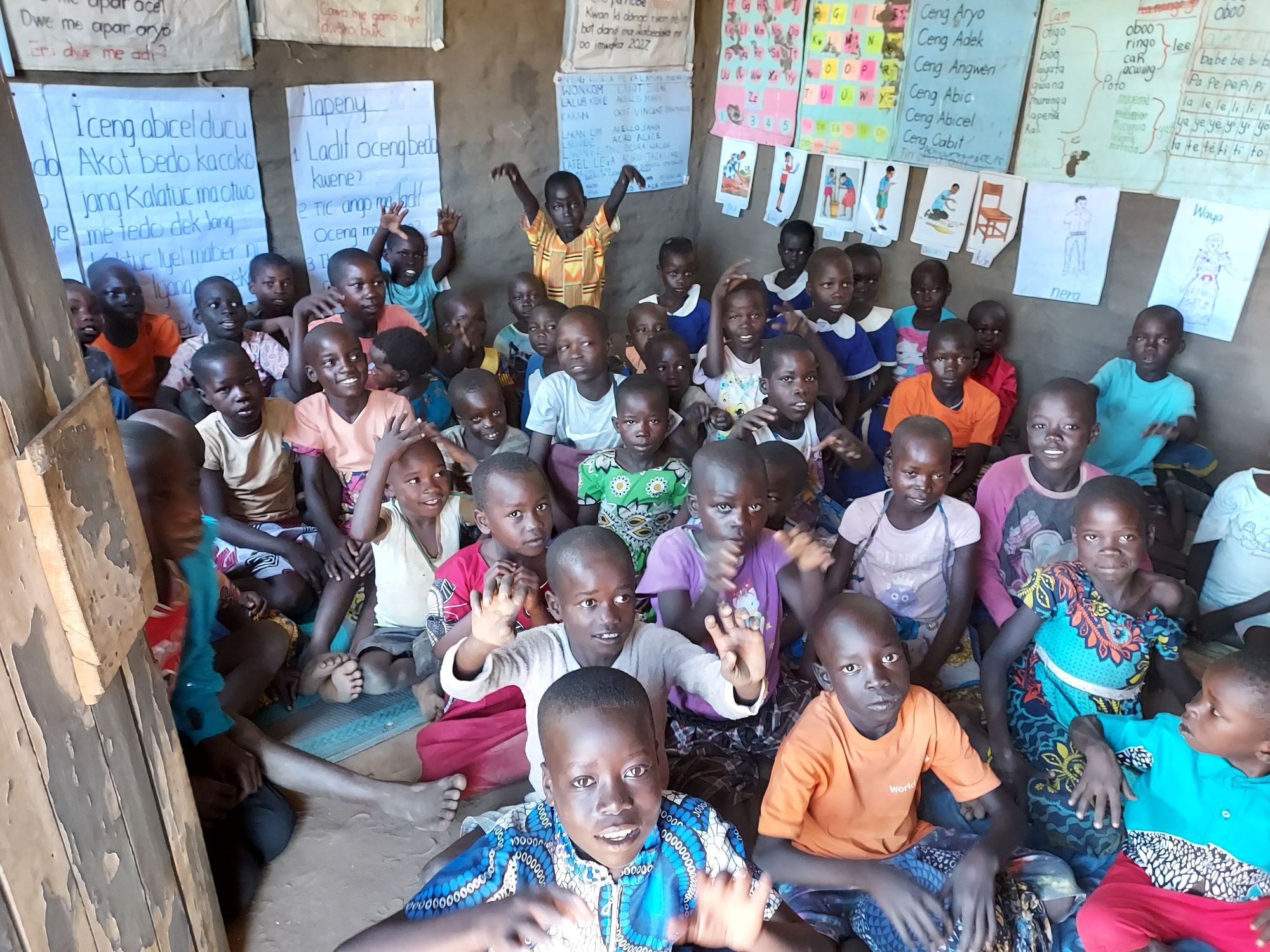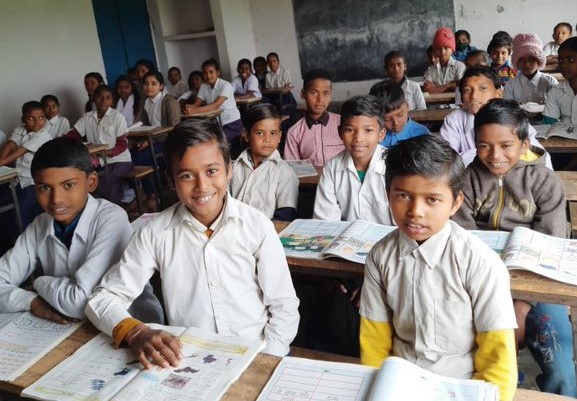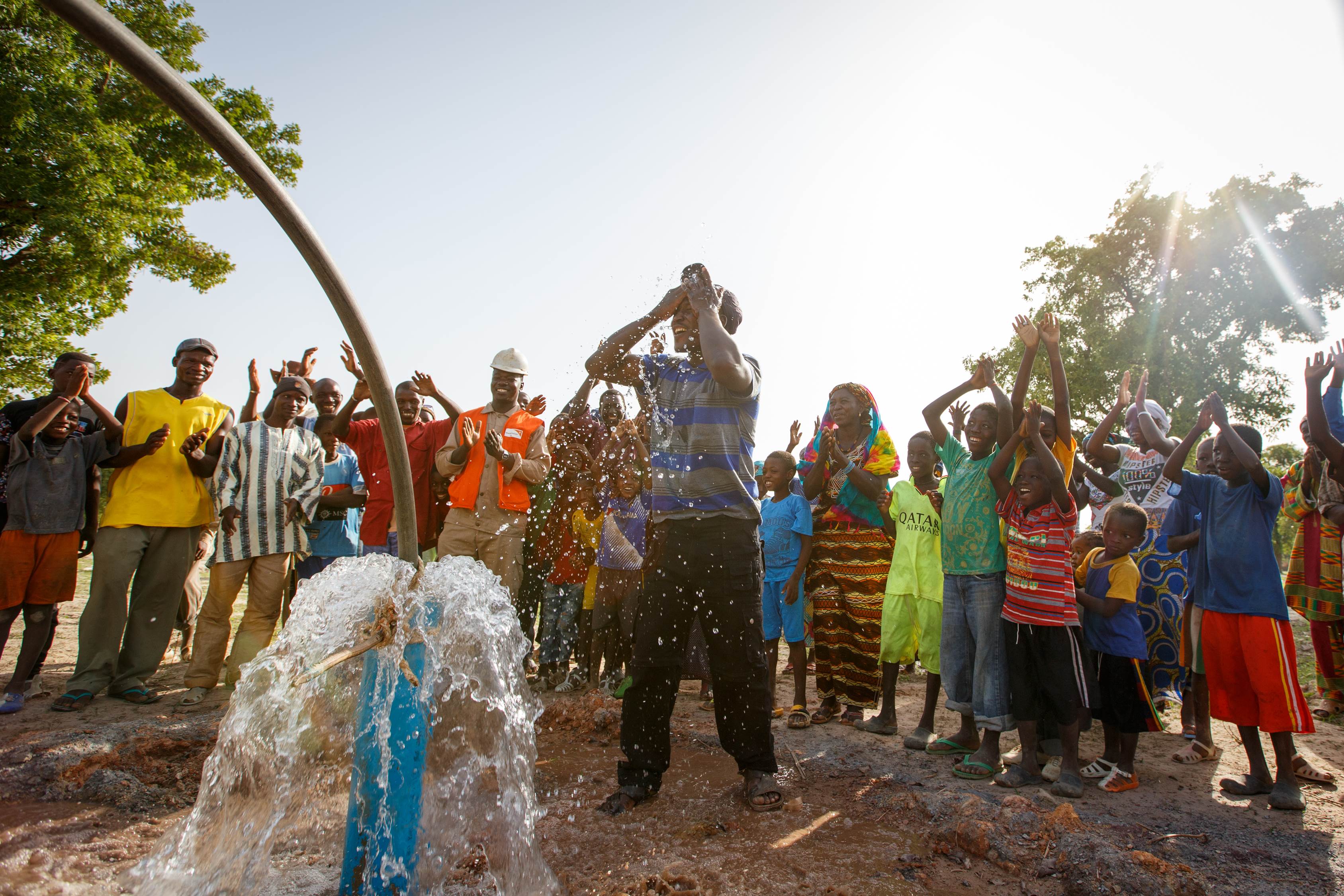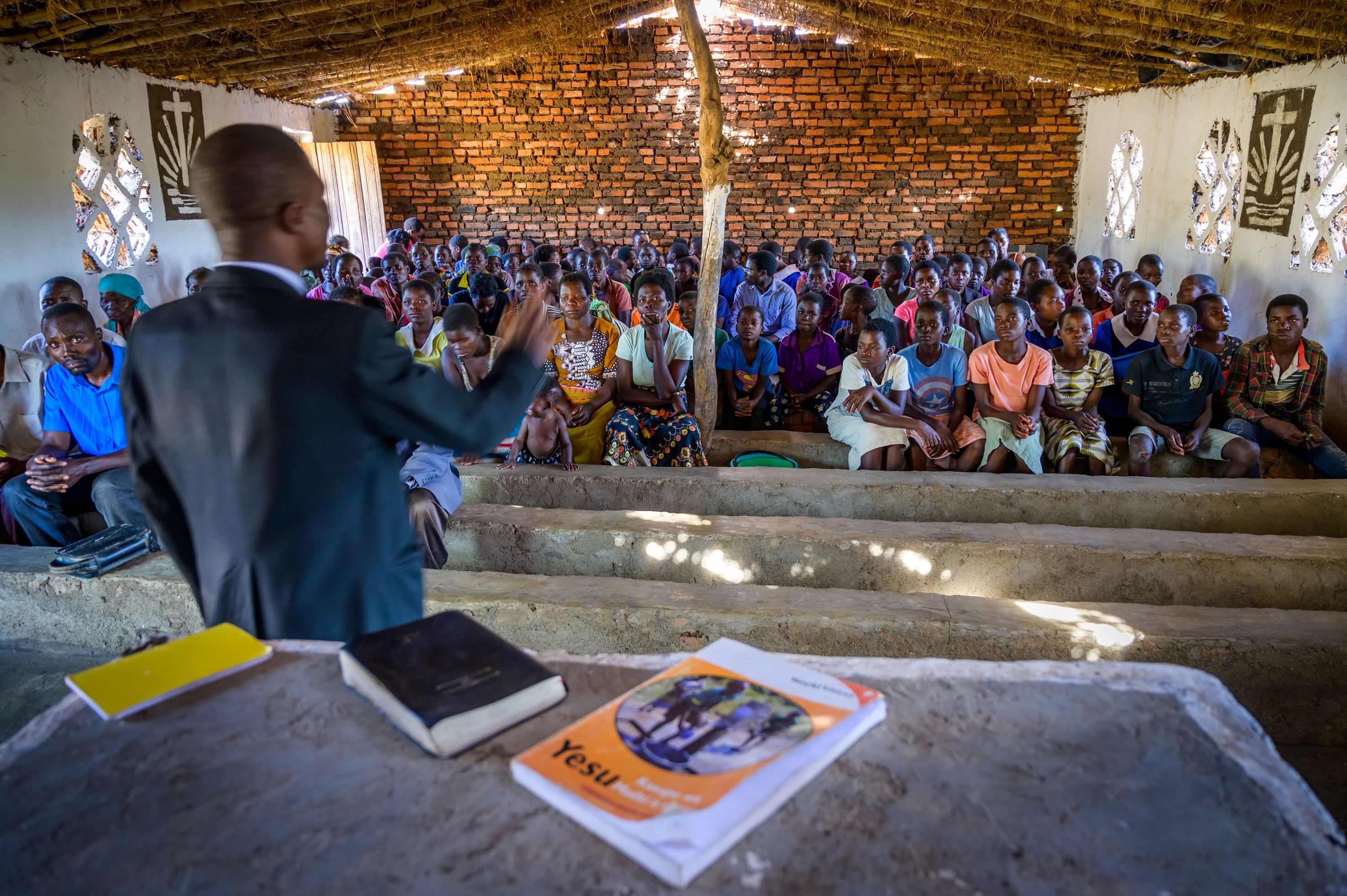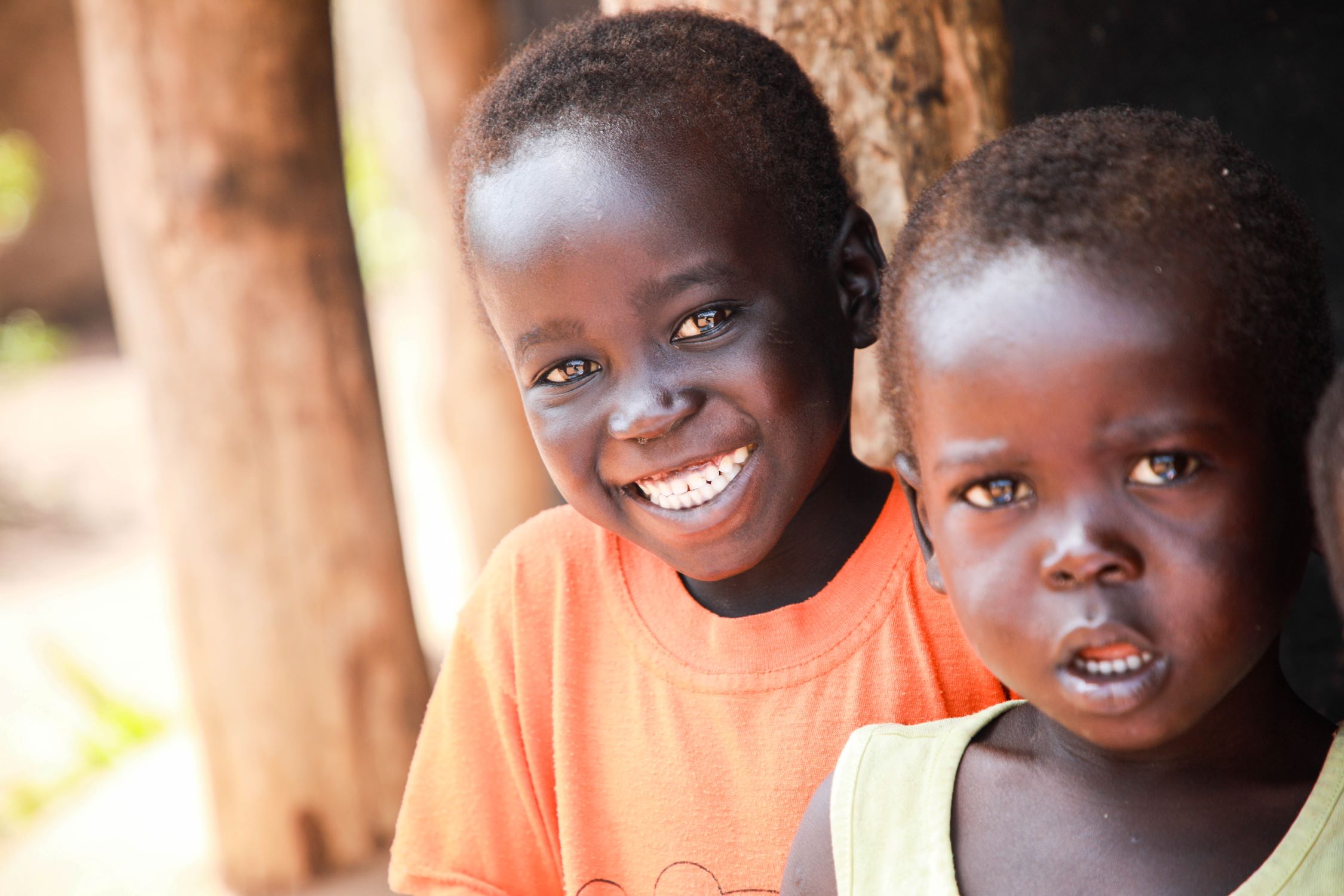
Chosen is "hope for Uganda”
Sometimes you hear about something amazing … then you see it
by Matt Hyam, World Vision UK Church Specialist
Sometimes you hear about something amazing… then when you see it, it isn’t as good as it’s been hyped up to be. It’s even worse if you’re the one who’s been hyping it up!
In September I was invited to be part of a World Vision team to visit Uganda and see, first-hand, our work there. We’d also get the chance to talk with local staff and work out how to tell the story of the work in a way that does it justice. (The buzz word around this is ‘ideate’: I have no idea what it means but I just smiled and looked confident - I think I got away with it.)
We were there to see Chosen in action. Chosen gives Child Sponsorship an amazing twist. Sponsors send photos and information about themselves, photos are displayed in the community as part of a ‘chosen party’ and then the children choose who they would like to sponsor them.
My fear was that Chosen might not be as good as I’d told people it was.
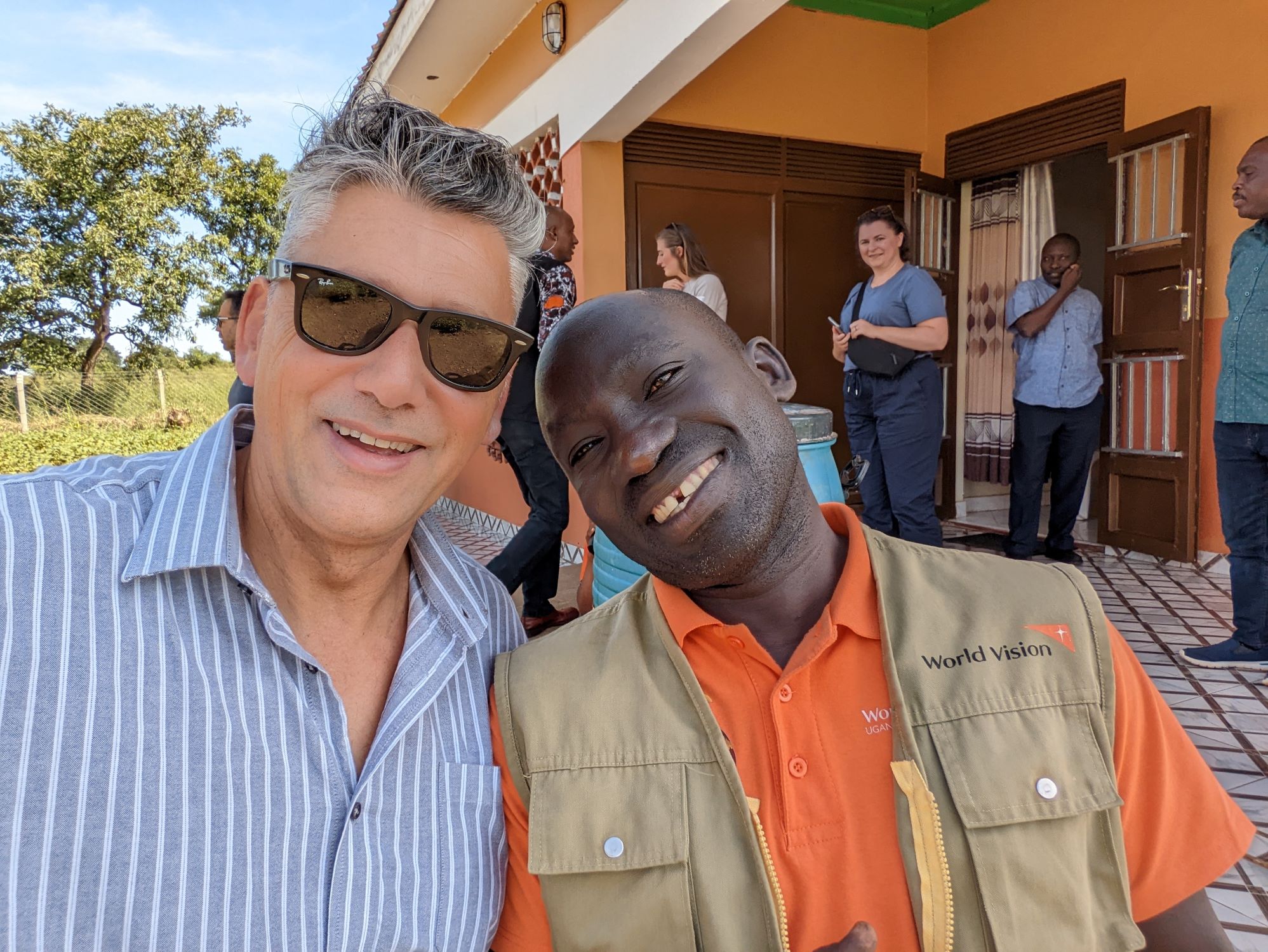
At World Vision UK, we partner with a project in Pajule, Northern Uganda.
Uganda’s history is sad reading and I knew that this area had been devastated by conflict; that there had been extensive suffering and destruction. I knew that we were part of the emergency aid in the early days, running refugee and trauma camps for those who had been affected and, in some cases, forced into becoming child soldiers/bush wives. I knew that our work focused on transforming entire communities, with the money going to the outworking of a plan drawn up with community and church leaders, not just the sponsored children.
A hope dance
I also knew that, when Chosen was launched there in December 2019, the women performed a ‘hope’ dance. A dance which they had not done for 20 years. I’d already told lots of people about this because it’s inspiring and heart-rending. Every time I do, I have to hold it together.
Back to my visit. Like I said, sometimes you hear about something which sounds amazing (especially when you’ve been telling anyone who will listen how amazing it is), then you see it, and it’s not what you thought.
The work I saw in Pajule was not what I thought it was.
In every conceivable way, it surpassed all my understanding of World Vision’s work through our Child Sponsorship programme. Honestly, I was ashamed of how bad a job I have done at communicating it. So, here’s a chance to put that right!
Chosen: Transformational
After a terrifying one-hour flight, on what can only be described as a large washing machine with a propeller (and let me tell you, when the pilot of one of those tells you to turn off your phone, no one argues!), we arrived in Gulu, where the World Vision Uganda Northern Region office is based. We met staff from many areas and projects within that region and heard about the work.
I was interested to hear their take on Chosen because I’d assumed it created a lot of extra work for the Ugandan staff, that I doubted they welcomed.
The more the local staff talked, however, the more it became clear that they really liked Chosen as a model. I began to sit up and take notice (not that I had not been taking notice, you understand, but I was recovering from a near death experience in a household appliance, that frankly, should have stayed on terra firma.) Because I am a skilled interrogator, I was able to formulate a clever response: “Why?”
They had so many reasons!
With Chosen the parents are fully involved in the choosing party and get to see their child picking a sponsor, as well as the picture they select, and are fully engaged in the entire process.
One mother told us, “When I saw my child choosing their sponsor, I knew that the whites don’t own us anymore.”
Wow!
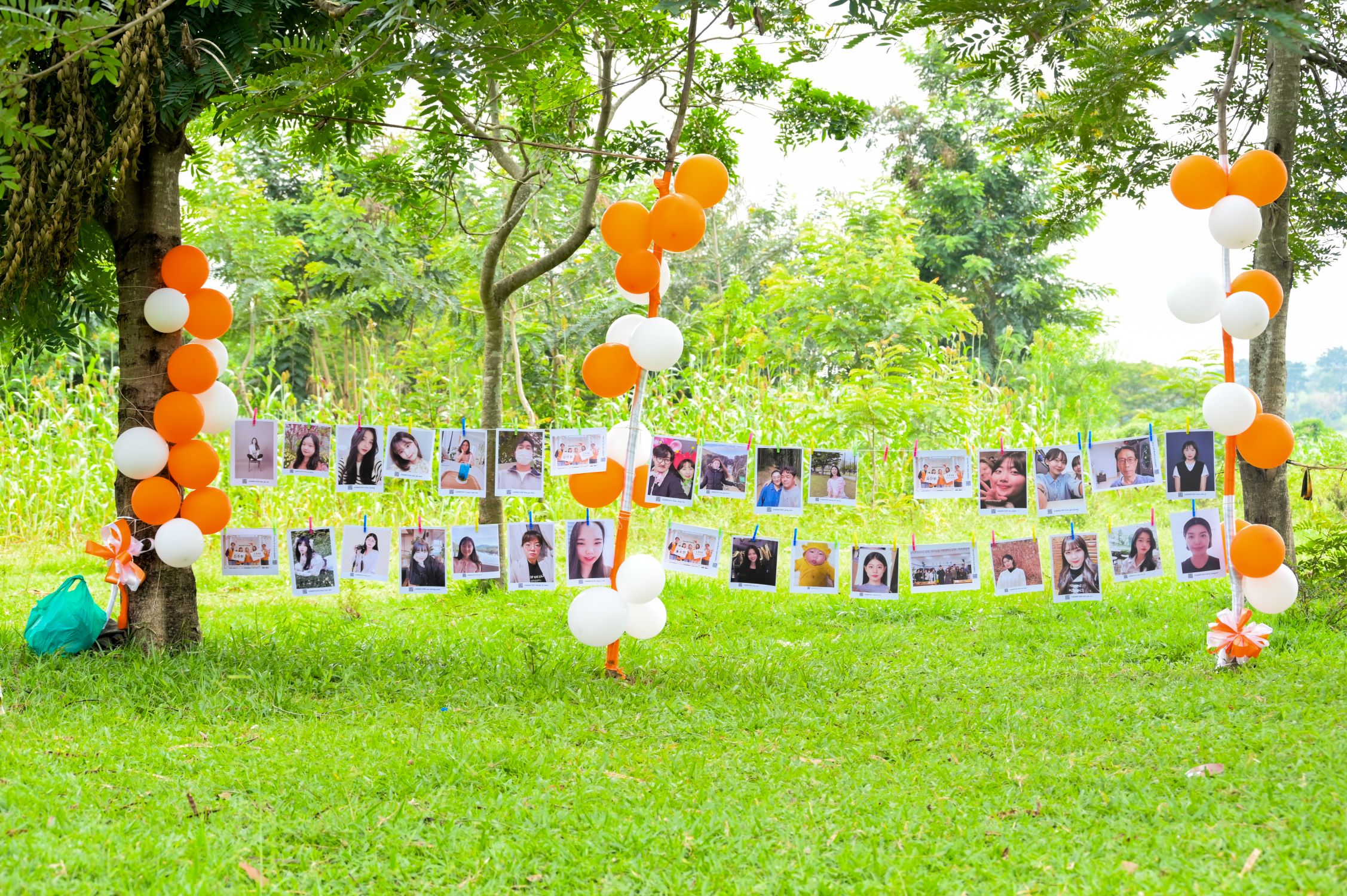
The regional manager told us that it had made the process transparent for the parents and wider community, and, as a result, the buy-in from parents was unprecedented. They were fully involved in everything.
Hope for the future
One pastor told us that now the parents and community genuinely see the children as the hope for the future.
We’ve talked about empowering children with this opportunity of choosing something for the first time, and it really is true. It became clear from several conversations that children in Uganda don’t often get to make decisions about anything – even down to what clothes they will wear - and so to choose their sponsor was significant.
OK, so they can pick a photo! Big deal.
It is actually. It is incredibly profound that, because of that one choice, and with the parents and community seeing them as the hope for the future, it has genuinely empowered children to make more decisions. They really are ambassadors for the entire community.
Children’s Parliament
We were chatting about this during a car journey, mulling over what we were seeing. I turned to Eric, the regional manager (and our driver for the day) and asked, “Is there a way that the children can actually act as ambassadors for the community?”
Eric responded in a way that I was becoming used to on the trip: “We already do that.”
He went on to explain about the Children’s Parliament, where two kids from each school are chosen by their fellow pupils as representatives. They gather from different schools and have been known to debate with government ministers.
Most recently, he told us, the local government wanted to shut down a school because it had no toilets. The Children’s Parliament sprang into action, successfully persuading the local authority to build a toilet block and save the school.
One pastor told us that instances of child abuse had decreased massively in Pajule, as the children now know they have someone to turn to, and the adults know that the children will talk to World Vision.
Transformed communities
As I’ve already said, I knew that what we did transformed communities, equipping them to the point that we are no longer needed. But I had no concept of how all-encompassing it is and what a difference Chosen makes.
Let me go back a few steps.
Pajule was decimated by a war that started in the 1990s and raged for over 20 years. There was nothing but refugee camps. Some people lived in camps for almost two decades. When they finally went home, 15 years ago, there was no home to go back to. There were no crops, no animals, no buildings. Nothing.
That is the starting point of the story of Chosen in Pajule. That is the reason the women had not performed a ‘hope dance’ for 20 years.
When we say that we work with the world’s most vulnerable children, it’s the reality.
Using a model that was created and being pioneered there in Uganda, World Vision gather clusters of up to thirty households, appointing a head household and community leader, and a central space, in which they help the community build a learning centre. This serves as the hub for everything that is happening in the cluster – training, academic learning, health and nutrition, and safeguarding.
The community takes part in skills training, building on existing farming skills, learning which crops are the most drought-resistant, and about healthy, balanced diets for themselves and the children. One child, when asked about the biggest difference in life, since World Vision came, said that they ate different food!
Together they grow crops and breed livestock, sharing a common business purse and supporting one another. Any excess food is sold, and the money put into the cluster’s savings. It really struck me how, in Pajule, community was the focus - an incredible picture of fellowship – sharing their lives in common.

Lives turned around
It was heart-breaking listening to the stories of the parents, of their utter hopelessness, growing up in refugee camps and coming home to nothing. Yet it was also amazing to see their lives turned around now and their children living the healthy, hope-filled lives they never had. I heard story after story of how everything had changed because of our work. As one woman said, Chosen is “hope for Uganda.”
A pastor, who was brought up in a refugee camp, spoke to us and said, “You must ask them about Empowered World View (EWV), it changes everything.”
So, we did.
EWV was created by the World Vision East Africa Region. In Pajule, everyone goes through a three-day, biblically based course, delivered by the local churches, built around four ‘pillars’ - identity, vision, compassion and relationships. At the risk of over-simplifying, it’s essentially about helping people to value themselves and others, through a lens of how God sees them, undergirding all the work there. The result of this is that they are seeing dependency attitudes reduce, more hope, better relationships, greater care for others and the environment, higher levels of integrity and more ‘just systems and practices.’
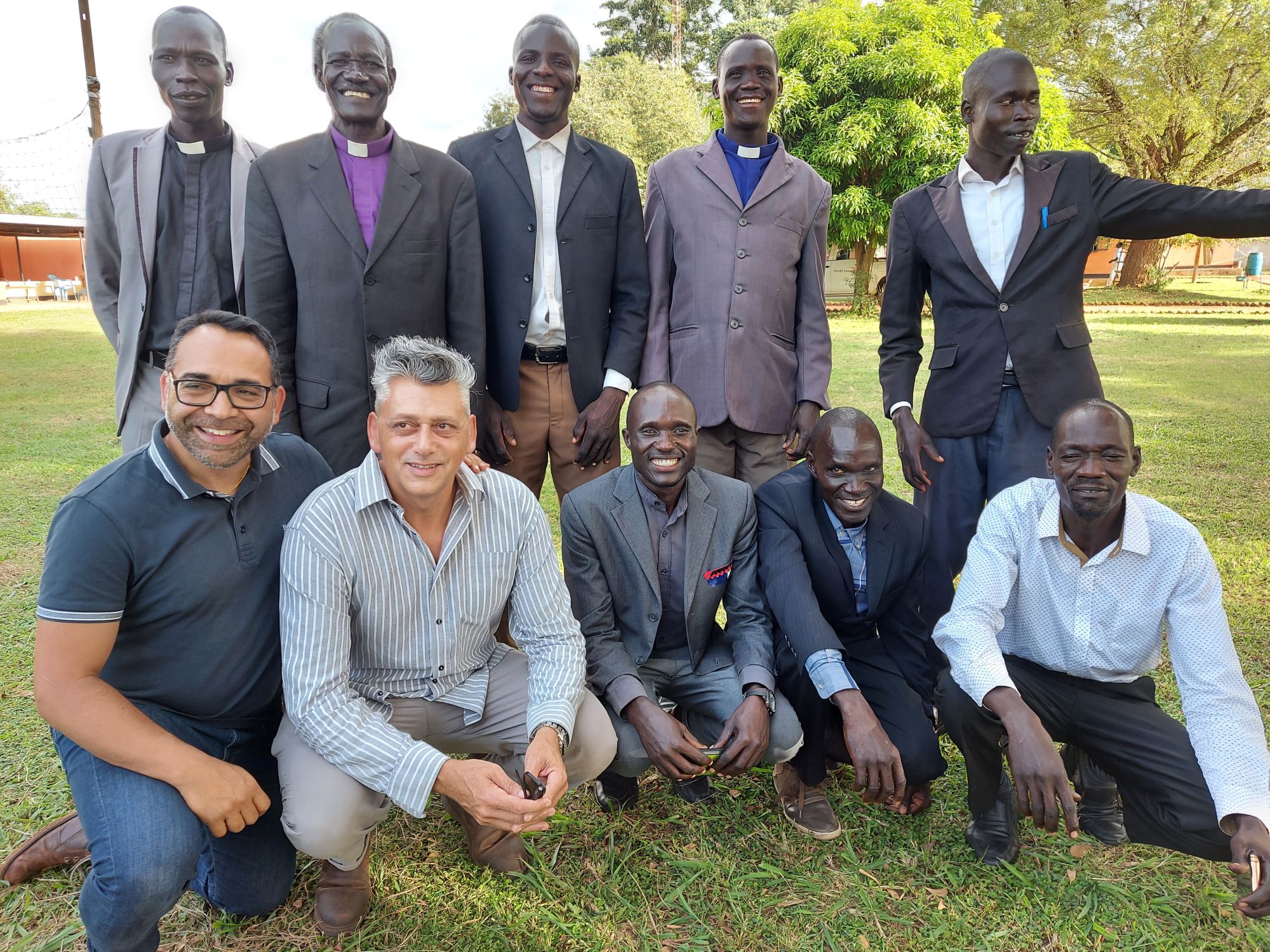
World Vision impact
We sat outside to meet with a group of pastors. In the Pajule area, World Vision is working with over forty churches from a range of denominations – Anglican, Catholic, Baptist, and Pentecostal.
We were particularly interested in whether it was authentic unity or just ‘watering hole unity’ (gathering around a spot because interests happen to converge.) We were pleasantly surprised to see that these churches are genuinely working together – even sharing pulpits with one another. I asked if they had been working together before World Vision came, and they all responded that they had not.
They spoke of how churches were growing and levels of discipleship were increasing within their congregations. Who knew our work was having such an impact on the churches?
So what?
When we say ‘sponsorship,’ most people think of one child supported by a sponsor, potentially gaining an education and a ‘leg up’ in life. World Vision is not like this, it’s about lifting up whole communities.
We can easily miss the power of these words. The reality is so much richer and more colourful. Children are being empowered, communities are working together, churches are growing, hope is being restored and futures are being ensured, now, in Pajule.
How do we even begin to communicate a work that is so incredibly broad, and deep, and beautiful? Answers on a postcard.
